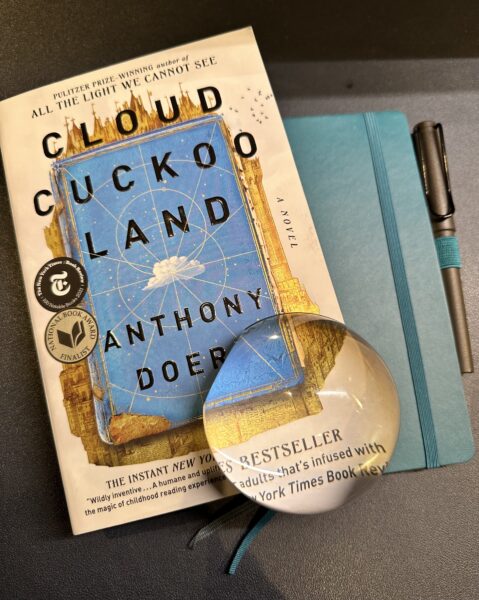Not that it comes as a surprise, but like me, over 4.7 million Goodreads members plan to read a lot this year – on average, 40 books. Unfortunately, Goodreads isn’t representative of the US population. According to a poll conducted by David Montgomery of 1500 Americans, in 2023 as much as 46 percent didn’t read any books at all and 5 percent just one. (About 79 percent of US adults are literate, although 54 percent have below sixth grade reading proficiency.)
Reporter Andrew Van Dam wryly commented, “if you read more than two books in 2023, congratulations! You’re in the top half of US adults.” Reading 40 books would land you in the ninety-fourth percentile. Whether you’re already a bibliophage or hoping to make reading more central in your life, you may like this list of apps to support your reading habits.
I learned to value books from my parents who I remember as reading almost nightly, whether on their own or to me and my siblings when we were young. Although not everyone who grows up to love books is mirroring parental habits, I do wonder to what extent watching elders read a book – in contrast, to say, watching them scroll on their phones – influences how youths decide what are legitimate uses of free time, if not also sparking a love of all things related to learning.
Presently, absenteeism in US schools is at an all-time high, almost doubling between the 2018-19 and 2021-22 school years. According to research conducted by Thomas Dee of Stanford School of Education (one of my alma maters) and reported by Alec MacGillis for The New Yorker, 28 percent of students were chronically absent in 2021-2022, which meant they missed at least 10 percent of school or 18 days in an academic year.
While many factors can lead to absenteeism – and I don’t imagine many students claim they skip school because they dislike book reading – the possibility of nearly a third of students missing out on an education doesn’t bode well for their well-being or our society. This is especially troublesome in the current scourge of misinformation and disinformation permeating the internet, where most of the consuming of information occurs. According to the World Economic Forum’s Global Risk Report 2024, the greatest risk facing the world during the next two years is misinformation and disinformation. This is based on a survey of almost 1500 experts from academia, business, government, civil society, and international work. (Perhaps not surprising, in 10 years issues related to climate change debunk misinformation and disinformation as the greatest risk).
According to an editorial on misinformation in Nature, misinformation on the internet takes advantage of “data voids,” or lack of information that would be useful for determining the veracity of a claim. What many of us come to believe is true is instead often the result of the “illusory truth effect,” in which we tend to believe something is true the more we encounter similar statements, not because we are encountering increasingly reliable data or information. Even when we might try to cross-check the validity of a claim, for example, looking up something like “Covid-19 vaccines cause autism” after reading an article that states this is the case, we are more likely to find more articles that make similar claims given how search engines work. The authors of the Nature article warned, “copying terms from inaccurate news stories into a search engine reinforces misinformation.”
A better approach is to develop good research skills and treat your online searches like a research project, looking for sources that both support and contradict the claim you are investigating, while also being knowledgeable about the sources you rely on when trying to reach conclusions. Especially in an election year, finding the truth is worth the effort.
Not all reading is directed toward information and digesting facts. Like the great sociologist of religion Robert Bellah wrote, “one of the first things to notice about the world of daily life is that nobody can stand to live in it all the time.” To which I say, thank you, fiction!
This brings me to the book I read for week 2 of 2024: Anthony Doerr’s Cloud Cuckhoo Land, which I chose because of the chance to take part in a book club at my neighborhood bookstore. I loved the book, although my enthusiastic endorsement wasn’t shared by all the 25+ members of our group. Our varying opinions made for a delightful discussion of the merits and mishaps of this sprawling novel. Many of us were encountering each other for the first time. Still, there’s few things that have the power like a book to bring people together in search of the truth, even if that truth is simply what makes a great story.

